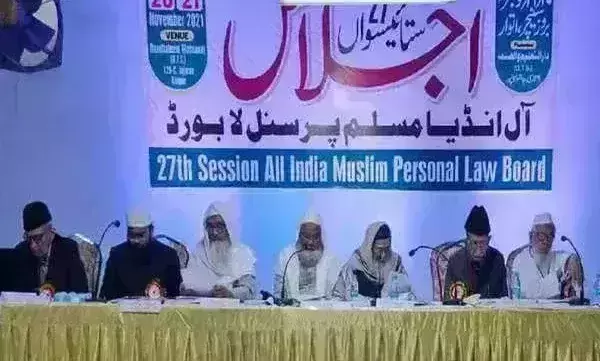
AIMPLB increases women representation by allotting membership to 30 women in various fields
text_fieldsLucknow: In a move to empower Muslim women in India's top Islamic organization run by senior clerics, the All-India Muslim Personal Law Board (AIMPLB) has allotted membership to 30 Muslim women from various fields and appointed three women as executive panel members.
Hailed as a significant move, AIMPLB announced the decision during its recently held two-day general body meeting in Kanpur, in which about 140 delegates from across the country participated.
As per reports, the newly appointed women members do not hold any religious title or madrasa degree, but are endowed with the experience of serving society as per Sharia laws.
AIMPLB executive committee member, Maulana Khalid Rashid Firangi Mahali said, "Hyderabad doctor Asma Zahra, who runs a charitable hospital, Lucknow-based Dr Nighat Parveen, an educationist who runs schools and madrasas in Uttar Pradesh and a social worker from Delhi, Atiya Parveen, have been appointed executive committee members."
He said that the names of Muslim women were recommended from across the country and the Board nominated those who are qualified and practising Muslims working in social fields.
The AIMPLB is also running a women's helpline to assist Muslim women in dealing with social or family problems and has constituted special panels to generate awareness among masses against triple talaq, dowry, extravagance in weddings and other social evils.
The Board was constituted in 1973 to formulate strategies for protection and continued applicability of Muslim Personal Law.
Earlier, the AIMPLB had demanded the enactment of an anti-blasphemy law to punish those who show disrespect to Prophet Muhammad and "holy religious figures" and urged the government not to attempt imposing the Uniform Civil Code, directly or indirectly.
The conservative Muslim body, which exercises a crucial say in the affairs of the community, also sought "curbs against communal and hostile posts on social media and legal action against miscreants.























